
Robohub.org
25 women in robotics you need to know about – 2015
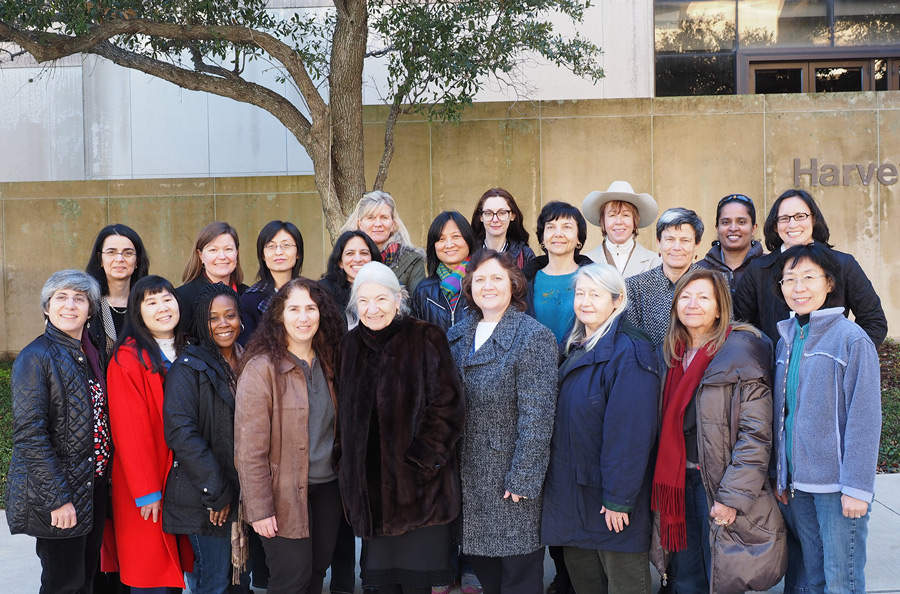
ICRA 2015 Organising Committee
Ada Lovelace was the world’s first computer programmer, and heralded symbolic logic by demonstrating future applications for the universal computing machine that Charles Babbage proposed. She was exceptional in her era for her mathematical brilliance, but though she imagined future applications for a multitude of technological innovations, women at that time were not encouraged to speak about or publish their work, so Lovelace’s genius was appended as ‘notes’ onto the work of others and not seen as a major contribution in its own right.
The fact that the contributions of women such as Lovelace have not been celebrated until recently gives us cause to remedy the situation. Now in its third year, our list of ‘25 Women in Robotics You Need to Know About’ is both a shoutout and a call to look at what all these women in robotics have achieved!
This has been a year of extremes for women in robotics. We celebrated the news of a phenomenal ICRA — one of the premier academic robotics events worldwide, and this year brought to us by an all-female organising committee. But we also despaired that IROS, equally esteemed in academic circles, featured not a single woman delivering a keynote, plenary, or participating in many of the key discussions, such as the futurist forum or the citizen forum. The DARPA Robotics Challenge (DRC) Finals 2015 were similarly lacking; of the 444 robot builders representing 24 robot entrants, only 23 builders were women (though some of the most successful teams at the DRC had female team members). Given how multidisciplinary the field is, and how many different skills are required, we need to celebrate women who are achieving greatness in robotics until we are seeing more parity.
This list showcases women in a wide range of roles and career stages, from the early stage entrepreneur/academic to those who are at their peak. We’ve also featured women working in a wide range of fields: women who are inspiring young Africans, trailblazing the field of surgical robotics, and helping us beautify ourselves using technology.
The honourees on our list of 25 Women in Robotics You Need to Know About – 2015 have been chosen for the resilience, perseverance and sheer brilliance they had to demonstrate to get to the top of their particular tree. Whatever your field, we hope that you find a woman doing great things in robotics to inspire you!
Many thanks to Robohub’s contributors for all their great suggestions. Here are 25 women in robotics you should know about (in alphabetical order) for 2015:
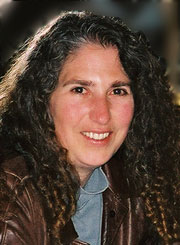 |
Nancy Amato Professor at Texas A&M Nancy Amato is noted for her research on the algorithmic foundations of motion planning, computational biology, computational geometry and parallel computing, as well as her leadership in broadening participation in the industry. Her 1998 paper on probabilistic roadmap methods is one of the most important papers on this field. Among other awards, she was made an IEEE Fellow in 2010. She has been a member of the Committee on the Status of Women in Computing Research since 2000. She was also the Program Chair at ICRA this year. |
 |
Spring Berman Assistant Professor of Mechanical and Aerospace Engineering at Arizona State University Spring Berman is developing a system that would allow swarms of robotic machines to perform reliably in situations where there is little prior data about the environment they are operating in, and where GPS and radio communication are limited and unreliable. She is the recipient of the 2014 DARPA Young Faculty Award and the National Science Foundation (NSF) Graduate Research Fellowship. |
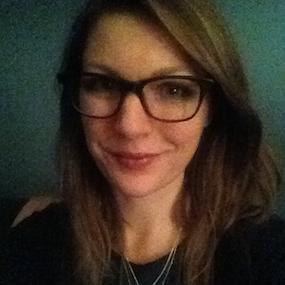 |
Kate Darling Research Specialist at MIT Media Lab Mistress of machines, robot ethics and intellectual property, Kate Darling is a Fellow at the Harvard Berkman Center for Internet & Society and an Affiliate at the Institute for Ethics and Emerging Technologies. She writes for Robohub and IEEE and is passionate about the near-term societal impact of robotic technology, rethinking copyright, and patent law. |
 |
Fei-Fei Li Director, Artificial Intelligence Lab and Vision Lab, Stanford University (SAIL) Fei-Fei Li is working to solve some of AI’s trickiest problems: image recognition, learning and language processing. Her work at SAIL has helped to create software capable of recognizing scenes in still photographs — and accurately describe them using natural language. It marks a significant step forward for AI research, and could lead to applications ranging from more intuitive image searches to robots able to make autonomous decisions in unfamiliar situations. |
 |
Propa Ghosh Medical Director of Robotic Surgical Services at Hunterdon Medical Center Propa Ghosh is the first female medical director of robotic surgery in the USA. She is an ambitious, forward-thinking physician with the ability to combine surgical expertise, compassionate 360 degree care, strong business acumen, and organizational skills to help develop and foster initiatives from the ground up. She is committed to excellence in medicine through the propagation of advanced surgical techniques, staying at the frontier of skill and knowledge. |
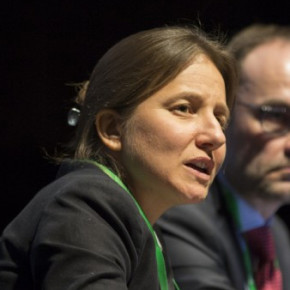 |
Cecile Huet Project Officer at European Commission Cécile Huet is Deputy Head of the Robotics Unit at the European Commission and instrumental to the success of the new wave of robotics projects funded under the multi-billion dollar Horizon 2020 funding programme. Her focus is on robots that can help people and drive applications forward. |
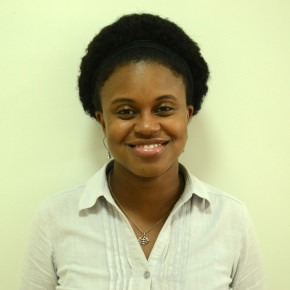 |
Ayorkor Korsah Assistant Computer Science Professor at Ashesi University College | Co-founder of the African Robotics Network Growing up in Nigeria and Ghana, Ayorko Korsah has been a technology evangelist for as long as she can remember. In the US, she discovered her love for computer science and ultimately gained a PhD in Robotics and Artificial Intelligence from Carnegie Mellon University. Korsah co-founded the African Robotics Network (AFRON) in Ghana in April 2012. Ayorkor teaches robotics and computer science at Ashesi University College, and coordinates the Ashesi Innovation Experience, a summer enrichment program that engages high school students in leadership, design, robotics and more. |
 |
Danica Kragic Professor, Computer Science, Vice Dean, School of Computer Science and Communication, Royal Institute of Technology (KTH) Danica Kragic studies how robots interact with each other, how they sense things, and how they see and grasp objects. One of her goals is to build future systems that interact with humans and their surroundings in a natural way. A specialist in computer vision and robotics, Kragic coordinates several EU-projects in the area. She is director of the Center for Autonomous Systems and head of the Computer Vision and Active Perception Lab at KTH. She is also recipient of the European Research Council (ERC) Starting Grant and the IEEE Robotics and Automation Society Early Academic Career Award. She is a member of The Royal Swedish Academy of Sciences and Young Academy of Sweden. |
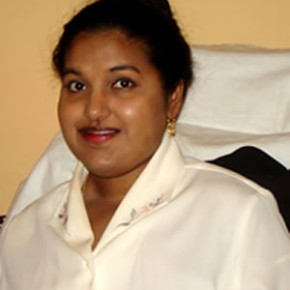 |
Kavita Krishnaswamy Ph.D. Candidate at University of Maryland Baltimore County Born in Tamil Nadu, India, and raised in Columbia, MD, Kavita Krishnaswamy is both a Ford Foundation Predoctoral Fellow and National Science Foundation Graduate Research Fellow. She has worked at the National Science Foundation’s Engineering Research Center – Quality of Life – Technology Center (QoLT) at Carnegie Mellon, the University of Pittsburgh and IBM Business consulting services. As a professional researcher with a severe physical disability, Krishnaswamy is motivated by a powerful, innate force: achieving autonomy and independent daily living through the advancement of technology. She develops robotic systems to provide assistance and increase independence for people with disabilities, to support transferring, repositioning, and personal care, with a focus on accessible user interfaces. |
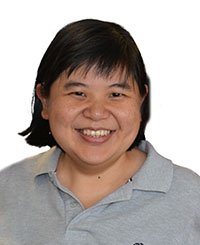 |
Hanna Kurniawati Lecturer at University of Queensland Hanna Kurniawati’s research interests include robotics, motion planning, planning under uncertainty, computational geometry applications, machine learning, and randomized algorithm. Before joining UQ, she worked with Nicholas M. Patrikalakis as a Research Scientist at the Singapore-MIT Alliance for Research and Technology. Recently she helped to create the Interactive-Ball (I-Ball) — a robotic soccer ball to improve social ball game participation for people with visual impairment that uses motion sensors, high-efficiency speakers and a small UQ-developed controller that can be programmed to suit the player. |
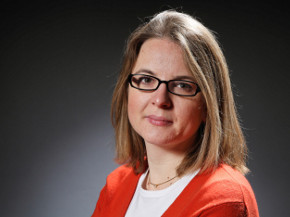 |
Stéphanie Lacour Assistant professor at the School of Engineering, Ecole Polytechnique Fédérale de Lausanne (EPFL) Stéphanie Lacour’s has pioneered the development of semiconductor devices that can stretch and still retain their electronic properties. Her goal is the fabrication of artificial skin — human-sized integrated circuits that can conform to a robotic or human body and communicate directly with the nervous system. Her research interests lie at the intersection of engineering, materials science and biotechnology. Lacour holds the Bertarelli Foundation Chair in Neuroprosthetic Technology at the School of Engineering at EPFL. A MIT TR35 winner in 2006, she also claims a University Research Fellowship from the Royal Society (UK), a European Research Council ERC Starting Grant, the 2011 Zonta award and the 2014 World Economic Forum Young Scientist award. |
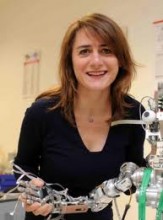 |
Cecilia Laschi Professor at Scuola Superiore Sant’Anna, Italy Cecilia Laschi’s research interests are in the field of biorobotics and she is currently working on soft robotics, humanoid robotics and neurodevelopmental engineering. She has been, and currently is involved in many National and EU-funded projects, she was the coordinator of the ICT-FET OCTOPUS Integrating Project, leading to one of the first soft robots, and the European Coordination Action on Soft Robotics, RoboSoft. She is a member of the IEEE, of the Engineering in Medicine and Biology Society, and of the Robotics & Automation Society, where she served as elected AdCom member, and is Co-Chair of the TC on Soft Robotics. |
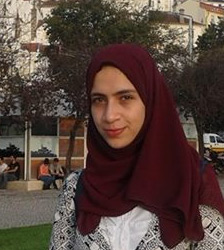 |
Hagar Marzouk Engineering student at Nile University Hagar Marzouk is leader of the “Walross” team in the Middle East and North Africa (MENA) and first female leader of a team in the Egyptian underwater competition, ROV, 2014. She took her team to first place in Minesweepers 2014, both at the national and international competitions. |
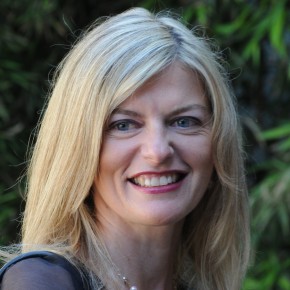 |
Barbara Mazzolai Deputy Director at Center IIT Barbara Mazzolai is the recipient of the 2010 “Marisa Bellisario” Award for her scientific and management activities in the EU DustBot project for improving the urban hygiene and the quality of life of citizens. In 2013 she was also awarded the Medal of the Senate of the Italian Republic for her scientific activities in biomimetics and biorobotics. Her current scientific activity focuses on bio-inspired soft robotics. She has project managed many European projects, including PLANTOID, and is Associate Editor of Micro-Bio Robotics, Frontiers in Bionics and Biomimetics and a member of the Editorial Board of Soft Robotics and Applied Bionics and Biomechanics. She is also a member of the IEEE, the Engineering in Medicine and Biology Society and the Robotics and Automation Society. |
 |
AJung Moon PhD candidate at the University of British Columbia. AJung Moon is a Vanier Scholar and studies human-robot interaction and robot ethics. Currently she is a visiting student at the Learning Algorithms and Systems Laboratory (LASA) at the Ecole Polytechnique Fédérale de Lausanne (EPFL). She is a co-founder of the Open Roboethics initiative, an international roboethics think tank that investigates ways in which stakeholders of robotics technologies can work together to influence how robots should shape our future. |
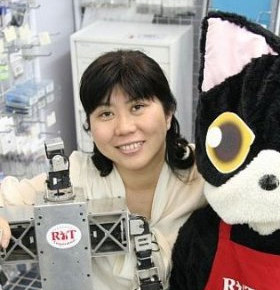 |
Yuki Nakagawa Founder and CEO at RT Corporation Fascinated by robots as a young child, Yuki Nakagawa has been involved in Japanese humanoid and home robotics for almost her entire career. Her life’s mission is to improve and enhance people’s quality of life through the use of robot technologies. Nakagawa’s company developed RIC90, which can wear an “animal suit” to achieve physical contact with people and can change forms. To date, RIC90 has hugged 3000 or more people and shared smiles all over the world. The company believes in the mantra: “No Physical Contact, No Service Robot” and wants to provide intelligence and sophisticated behaviour/motion animal-like robots that can work in close proximity to human beings. |
 |
Samantha Payne Co Founder at OpenBionics | Digital Marketer | Journalist Samantha Payne is co-Founder of Open Bionics, an award-winning startup developing low-cost effective and good looking bionic hands for amputees or those born without a hand. The company is now part of the Disney Accelerator, powered by Techstars. Payne, recently shortlisted for the ‘Entrepreneur of the Year’ at the Women and Business awards, focuses on building Open Bionics’ public profile, business model, network, and raising rounds. Open Bionics has won multiple awards for innovation, most recently the prestigious James Dyson Award and the RBA50. |
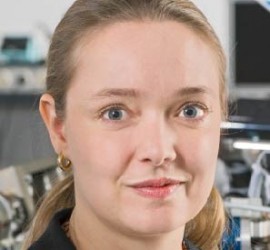 |
Angelika Peer Professor at Bristol Robotics Lab Angelika Peer’s research interests are in human-robot interaction (HRI) with special focus on telepresence and teleaction systems, brain and body computer interfaces, physical/haptic HRI and human motor control. Her research combines methods originating from control, robotics, mechatronics, computer science, neuroscience, and psychology. She has won numerous awards and is chair of the RAS Technical Committee on Telerobotics, a Member of the RAS Technical Committee on Haptics, Secretary of the Eurohaptics Society, and a member of the program committee of several international conferences in the fields of robotics, HRI and multimodal human-system interaction. |
 |
Louise Poubel Software Engineer at Open Source Robotics Foundation When Louise Poubel was a little girl, she had as much access to computers as her brother, but her father refused to give her a remote-control car even though he gave her brother one. Now she is convinced that we should “give the girls the toys” — it’s important to let kids know it’s ok for them to pursue anything they like. Poubel, who grew up in Brazil, got her engineering degree in Japan and masters degrees in Poland and France; she is a truly global citizen. She now works on the robotics simulator Gazebo, a graphical user interface (GUI), at the Open Source Robotics Foundation, with the aim of knocking down complexity and price — barriers that she believes stand between robots and people. |
 |
Wendy Roberts CEO at future Skies | CEO at Five Elements In 2001, Wendy Roberts founded Future Skies, which primarily develops software for the US Department of Defense. In 2012, she created Five Elements Robotics to help further US personal robotics design and manufacturing. The company’s Budgee,™ a friendly robot that follows you around and carries your stuff, won two Gold Stevie Awards in 2015: Technical Innovation of the Year at the American Business Awards, and New Product Award for Consumer Electronics. Roberts is currently CEO for both Future Skies and Five Elements Robotics. Five Elements is the only commercial US firm manufacturing personal service robots domestically. Based on her work with the military, Roberts has made it part of Five Elements’ mission to serve the disabled and the aging. |
 |
Noriko Takiguchi Journalist and author Noriko Takiguchi covers the business and technology of robotics for various newspapers and magazines in Japan, including Newsweek Japan, Diamond Online, Nikkei BP, Toyo Keizai, Newspicks, President magazine, Harvard Business Review Japanese version and AXIS. Her most recent book on the culture of Silicon Valley — Why is Garbage Not Sorted in Silicon Valley? (President,Inc., 2008) — is a collection of her weekly columns on the Nikkei BP website. She has also translated into Japanese books such as Bringing Design to Software and Engineer Imagines. Watch for her at robotics conferences and trade shows around the world. |
 |
Pree Walia CEO & Co-Founder at Preemadonna Entrepreneur, risk-taker, beauty junkie, and business school graduate, Pree Walia has combined a political career with leading teams at early stage hardware startups, most recently starting her own venture at the intersection of beauty and tech. Walia is co inventor of the Nailbot — a nail decorating robot that lets you paint custom designs on your fingernails — and winner of the 2015 Robot Launch international startup competition. She supports causes that empower women and young girls. |
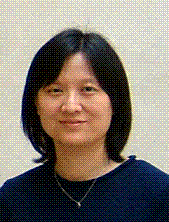 |
Jing Xiao Professor at University of North Carolina at Charlotte Jing Xiao’s research spans robotics, haptics, and intelligent systems. She is Site Director of the US National Science Foundation Industry/University Cooperative Research Center on Robots and Sensors for Human Wellbeing. She has over 130 publications in major robotics conferences, journals and books, and holds one patent. She is an IEEE Fellow and has been elected twice as an AdCom Member of the IEEE Robotics and Automation Society. |
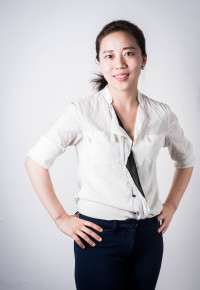 |
Yao Zhang Founder and CEO at Roboterra Yao Zhang’s company, Roboterra, makes tool kits that allow students to tap their imagination and creativity to design and build their own robots. Zhang earned her Ph.D. in Education Economics at Columbia University before working for McKinsey and Co. and the Soros Foundation. She has been working in the fields of education and technology for more than a decade, and won a “Best 10 Global Citizen Service Award” from the US State Department in recognition of her outstanding work in educational innovation. |
 |
ICRA 2015 Organising Committee – In 2015, the IEEE International Conference on Robotics and Automation (ICRA) — one of the world’s largest robotics conferences — had an organising committee made up entirely of women. In order to broaden the field, early career women who may be less well-known outside of their specialties were selected to serve alongside senior women on the 2015 committee. This showed that there are women experienced in every aspect of conference organisation that could be part of future committees. ICRA may well have set a precedent; leading annual Computer Vision event, CVPR, is planning to follow suit next year with a female only committee. |
Then and now
The celebration wouldn’t be complete if we did not share some of the recent achievements by women from our 2013 and 2014 honour rolls:
- Cynthia Breazeal has since launched Jibo with a massively successful crowdfunding campaign
- Helen Greiner has launched and successfully crowdfunded the LVL 1 Drone and keynoted at ICRA 2015
- Radhika Nagpal was named in 2014 among Nature’s 10 (scientists and engineers who made a difference).
- Lynn Parker chaired ICRA 2015 and was appointed as Division Director for the Information and Intelligent Systems (IIS) Division in the Computer and Information Science and Engineering (CISE) Directorate at the National Science Foundation (since January 2015).
- Melonee Wise launched Fetch Robotics
- Ekaterina Bereziy’s ExoAtlet started clinical trials.
- Ayanna Howard launched Zyrobotics and was a finalist in Robot Launch
Know of any great women in robotics who should be on this list next year? Check the lists from our previous years (2013 and 2014), and feel free to leave your nominations in the comments section below, or email us at info [at] robohub.org.
If you liked this article, you may also be interested in:
- 25 women in robotics you need to know about (2013)
- 25 women in robotics you need to know about (2014)
- Five women robotics experts from Silicon Valley share their stories
- Steffi Paepcke on Robots, women and design: Opportunities abound
See all the latest robotics news on Robohub, or sign up for our weekly newsletter.
tags: c-Politics-Law-Society, ICRA 2015, robohub focus on diversity, women in robotics, women in robotics list








